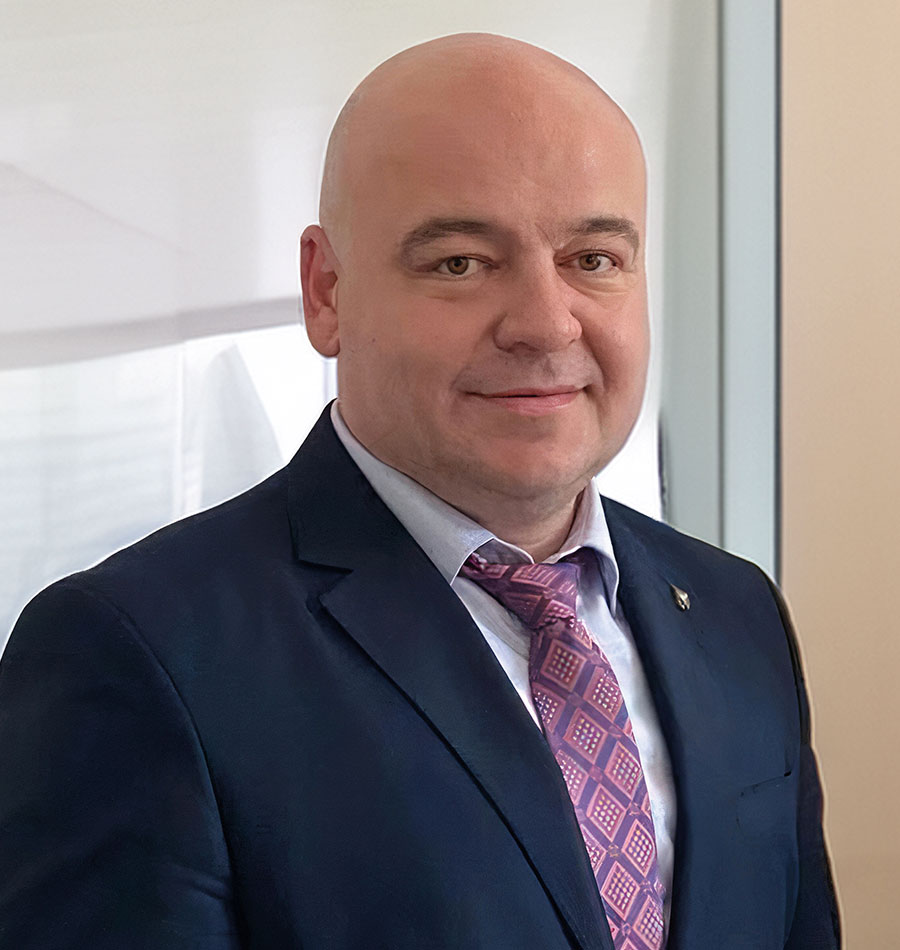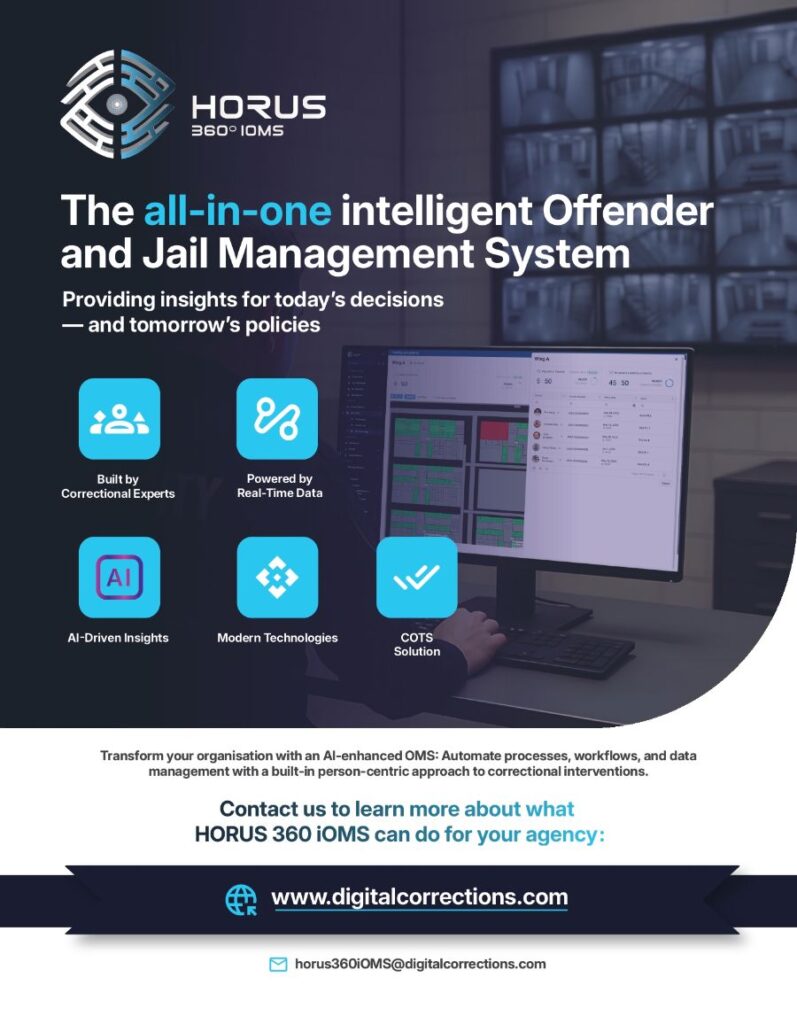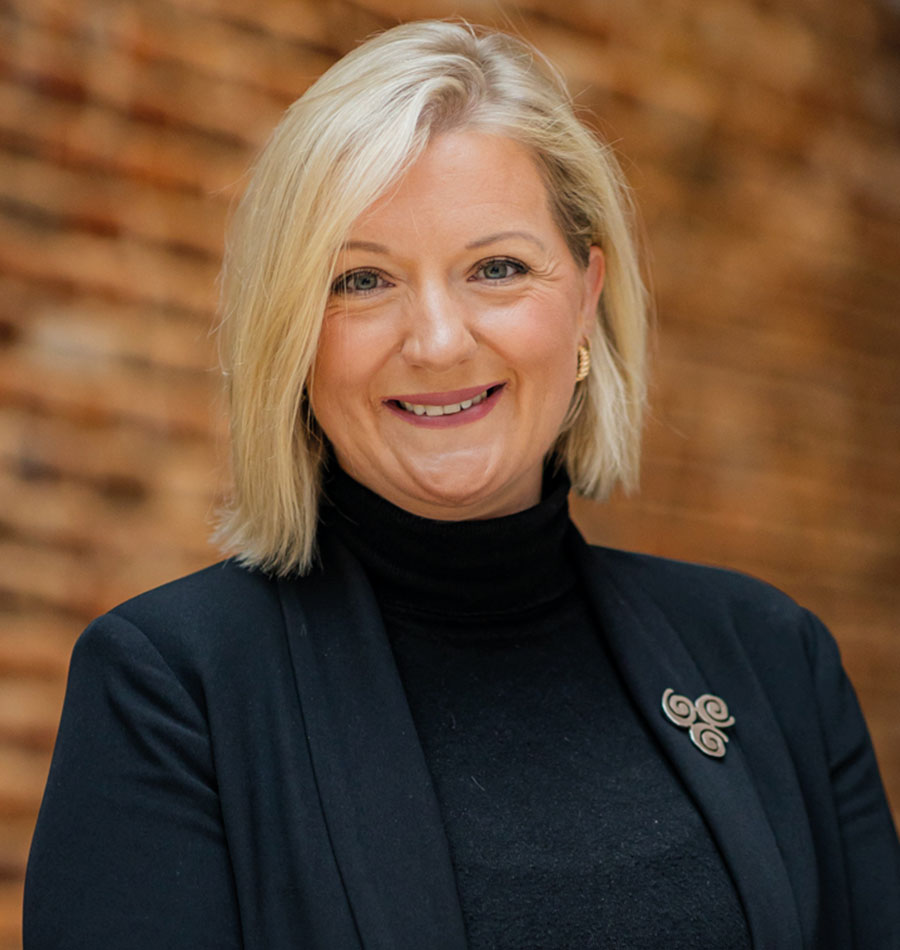Interview
Viorel Sochircă
Director of the National Probation Inspectorate of Moldova
In this interview, Viorel Sochircă, Director of the National Probation Inspectorate of Moldova, speaks about recent progress in Moldova’s probation and reintegration system, the importance of international cooperation, and the new programmes now being used to help people under probation build better futures. He explains current priorities, key challenges, and how different institutions are working together to support rehabilitation and reduce reoffending.
What are the key priorities and strategic objectives of the National Probation Inspectorate (INP)?
VS: The key priorities and strategic objectives of the National Probation Inspectorate are very much focused on positively influencing individuals under probation, whether that’s through organisational support, psychological guidance, education, or social interventions. The goal is to shift negative attitudes, reduce antisocial behaviour, and ultimately support rehabilitation in a meaningful way.
To do this, we start by looking closely at the individual’s personality and personal needs. We also assess how motivated they are to change and evaluate their risk of reoffending, which helps us decide what level of support or supervision they might need. From there, we focus on providing supervision, offering counselling and guidance, and making sure they have access to the help they need. Of course, throughout all of this, one of our key principles is ensuring that justice is fair, not just in terms of legal outcomes, but also in how we treat people and support their reintegration into society.
How have probation and reintegration programs evolved in the Republic of Moldova in recent years, and what are the current challenges faced by the INP?
VS: In recent years, probation and reintegration programmes in the Republic of Moldova have seen significant progress. One of the big steps forward has been the introduction of targeted intervention programmes. For example, in 2023 and 2024, Moldova piloted cognitive-behavioural programmes designed for both adult and juvenile offenders, with support from the Council of Europe. Another important initiative has been the “Drink & Drive” programmes, which included awareness sessions, such as visits to morgues, that have been linked to reduced recidivism.
There’s also been a strong focus on building professional capacity. Since 2016, there have been ongoing efforts to support the professional development of probation staff, including study visits to countries like Estonia, Latvia, and the Czech Republic that have helped bring in practical knowledge. Interinstitutional and international collaboration has played a key role as well. In 2022, for instance, conferences and working groups brought together stakeholders from the Ministry of Justice, NGOs, local professionals, and international experts, including from Romania and the Council of Europe.
We believe that all these developments show that Moldova’s probation system is evolving in a way that’s clearly aligned with European values and standards, and that we’ve been committed to adopting and implementing best practices from both internal and external partners.
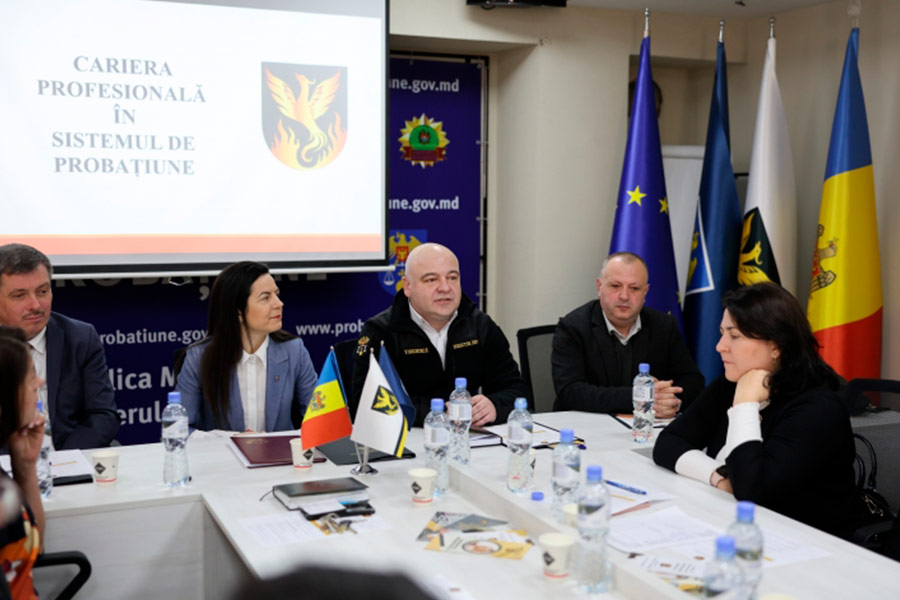
JT: The Reducing Violent Behavior Programme (RCV) for adult offenders under probation was developed jointly by the Council of Europe consultants and INP. In 2024, the program was piloted, evaluated, and validated as an effective tool for practical implementation.
What does this new program bring to Moldova’s approach to offender rehabilitation, and how do you envision its sustainable implementation?
VS: The RCV programme is a cognitive-behavioural approach designed to help individuals build up their personal resources. This programme helps identify and change the specific risk factors in their lives that are linked to aggressive and violent behaviour, while also encouraging prosocial values and building essential life skills and competencies.
One interesting aspect of the programme is the way it uses deeper thinking and emotional awareness to improve a person’s motivation to change. By promoting critical thinking, self-reflection, empathy, emotional control, social skills, and even media literacy, it helps individuals understand themselves better and make positive changes. It’s a holistic approach that addresses the root causes of violent behaviour and not just the symptoms.
Currently, RCV is implemented in all territorial subdivisions across the country, and it has become a key part of Moldova’s efforts to support cognitive-behavioural change in people with violent tendencies.
It is based on the three core RNR principles. Regarding the Risk Principle, RCV matches the intensity of the intervention to the individual’s risk of reoffending. The programme targets people who are assessed as medium to high risk, and ensures they get the right level of support to reduce the chances of committing new offenses.
The Need Principle recognises that while offenders may have many needs, only some of them are directly tied to criminal behaviour. Therefore, RCV focuses on identifying those specific criminogenic needs, because addressing these is essential for helping individuals change and reduce the likelihood of reoffending.
Finally, according to the Responsivity Principle, RCV emphasises cognitive-social learning techniques as the most effective way to change behaviour. The programme is designed primarily for adults on probation, and especially for offenders convicted of violent crimes, those who struggle with self-control, or those identified as medium-to-high risk in terms of causing harm. These are the most common types of offenses among probationers in Moldova, so the RCV programme is a direct response to those realities.
By focisong on professional development and giving staff the tools they need to effectively support violent offenders, the RCV programme has become a vital part of Moldova’s broader strategy for resocialisation and public safety.
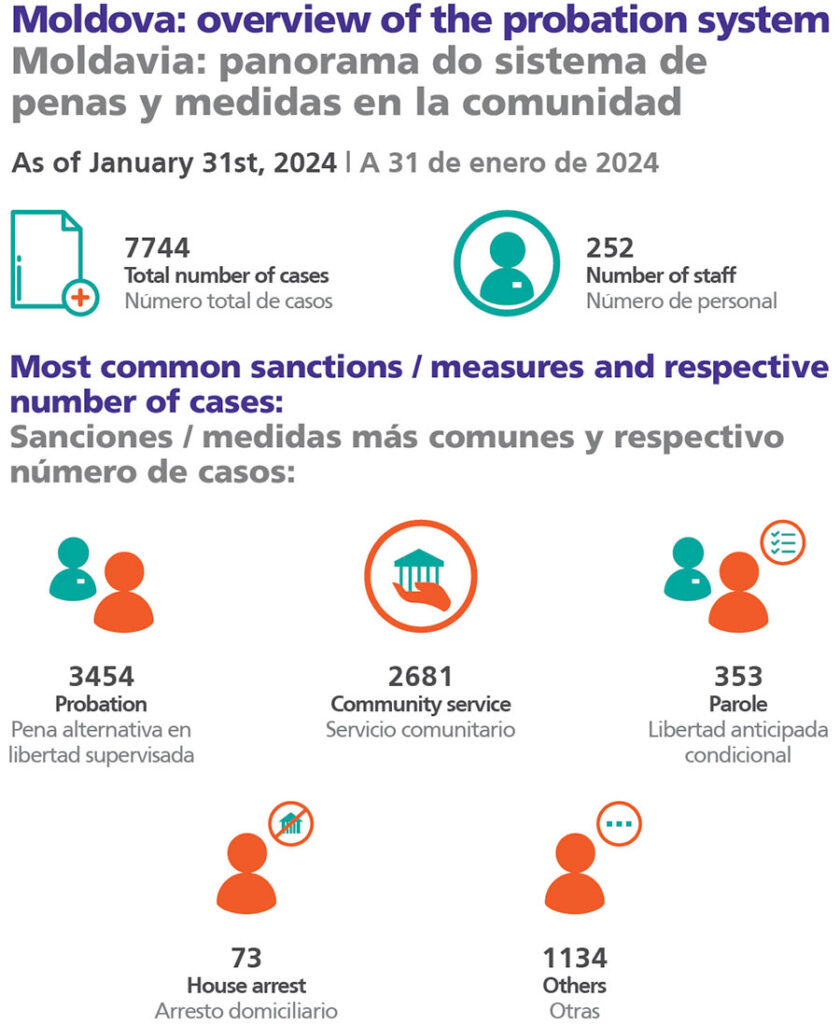
JT:A recent initiative brought together prison institutions, probation services, employment agencies, and civil society in Moldova to improve social reintegration and reduce recidivism. Over 400 detainees received individualised reintegration plans, counseling, and post-release support.
What lessons can be learned from this collaborative model to ensure continuity of support during the transition from detention to community measures?
VS: There are several links between prison and probation where we need to ensure a collaborative approach, and even go beyond these services and involve society as a whole.
One of challenges is overcoming one of the biggest barriers to reintegration that people face when they leave prison, which is stigma. The label “former prisoner” can close doors and greatly limit their opportunities to start over, leaving them feeling isolated and as if part of their identity is permanently questioned by society.
On another level, we believe that truly supporting socio-professional reintegration and respecting human rights requires a personalised approach. This means understanding each person’s unique strengths, challenges, and educational needs, and then designing tailored intervention programmes based on that.
These programmes can include education, vocational training, mental and physical health services, and social assistance, all delivered through close collaboration between the National Prison Administration, the National Probation Inspectorate, and the National Employment Agency.
All of these components are essential aspects of collaboration, however, even with a solid framework in place, implementation still faces significant challenges: there’s often limited funding, a shortage of qualified professionals, and gaps in continuity.
Another factor that plays a critical role is family support. A strong family connection can give someone a renewed sense of identity and belonging, helping them rebuild both their social and professional life. But the reality is that many people lose those connections during their time in prison, and reuniting with family after release isn’t always easy. That’s where community actors, such as probation officers, social workers, and prison staff, can step in and help rebuild those bridges.
That being said, at the end of the day, social reintegration is not only a government’s responsibility, but also a societal one. As a society, we all have a role to play in creating a more inclusive and understanding environment, where people who’ve served their time are truly given a second chance to become contributing members of the community.
In summary, one important lesson is that the essential goals of reintegration, which include preparing people educationally and professionally, helping them rebuild their self-worth, change negative behaviours, developing their communication skills, and making sure they have continued support after release, can only be achieved through multi-structural collaboration.
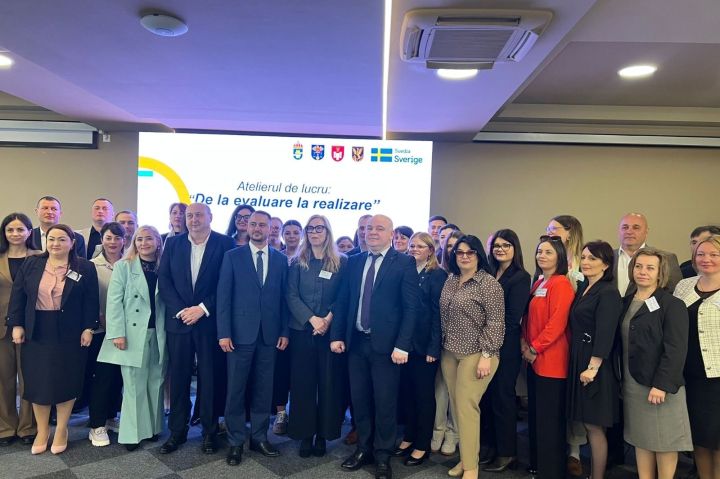
What measures have been taken in the probation system to improve recruitment, training, and staff retention?
VS: With support from the Swedish Prison and Probation Service, Moldova has carried out a thorough evaluation of its probation system. This process included in-depth discussions, interviews, and collaborative workshops to identify human resource management development needs. In Moldava, probation officers are classified as public servants, part of the general civil service. They don’t have a distinct legal status of their own, so any legislative changes to their role or conditions can only be made when deemed necessary at the national level.
Several important steps are planned for this year, again with continued support from Sweden. One priority is to develop an extensive initial and ongoing training system for probation staff, both for those in management and those working directly with clients.
Another focus is to implement learning programmes for probation counselors through distance learning such as e-Learning platforms, making it easier to access training regardless of location. There are also plans to improve the way staff are recruited, hired, and trained by refining internal procedures. And, finally, efforts are being made to institutionalise and expand the use of distance education, making it a more permanent and widely used part of the system.
How do you see the role of international cooperation in advancing justice reforms?
VS: Some of the most important reforms in Moldova’s probation and justice systems have been achieved with the support of international projects and organisations, so it’s fair to say that cooperation plays a very important role.
Our main goal is to continue strengthening Moldova’s probation system by building strong partnerships with European probation services. By collaborating with international experts, exchanging best practices, and learning from justice reforms across Europe, we are able to improve our legal framework, align our procedures with international standards, and reinforce the rule of law.
Viorel Sochircă
Director of the National Probation Inspectorate of Moldova
Viorel Sochircă has been serving as the Director of the National Probation Inspectorate of Moldova since June 2024. He brings extensive experience in policy evaluation, prevention, and implementation, having held leadership positions at the National Integrity Authority. He began his career as a criminal investigator and penal officer at the Ministry of Internal Affairs. Sochircă’s educational background includes the “Ștefan cel Mare” Police Academy and the Academy of Public Administration, where he specialised in internal managerial control, public policy development, and public service provision. He has been honoured with government diplomas in 2017 and 2020 in recognition of his distinguished service.
Advertisement

